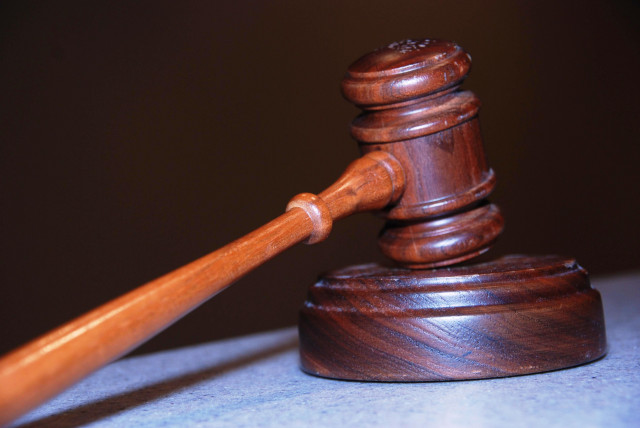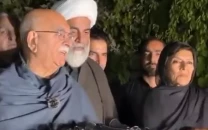Govt unhappy with IHC decision to release UTPs
Official says high court is not empowered to take suo motu notice on any issue under Article 199

PHOTO: FILE
Talking to The Express Tribune, two senior government officials in the law department expressed serious concerns over IHC Chief Justice Athar Minallah’s directives.
One of them questioned the manner in which the high court entertained the case and passed the orders without hearing all the aggrieved parties.
“The high court is not empowered to take suo motu notice on any issue under Article 199 of the Constitution,” he added
The official further said that a judicial order should be passed on a case-to-case basis rather than issued a general direction to release the UTPs on bail.
"There is a difference between judgment and legislation,” he added.
The official wondered why other superior courts had not taken a similar decision for the prisoners detained in other parts of country if the IHC order was appropriate.
“Even the apex court has not taken cognisance of the matter under Article 184(3) of the Constitution,” he said.
The government official believes that it is discriminatory that an accused who has allegedly committed an offence in Islamabad Capital Territory receives bail but detainees who are facing similar charges are still behind bars in the rest of the country.
He also feared that a security issue might arise in the federal capital after the release of over 400 prisoners. Likewise, adverse remarks may also be passed in the next FATF review report due to the release of the people held by the Anti-Narcotics Force.
The National Judicial Policy Making Committee (NJPMC), of which all chief justices are members, had not considered the proposal to release UTPs in its recent meeting held on March 19.
According to a press statement, the NJPMC deliberated upon and directed that prisoners would be protected from being exposed to the risk of coronavirus without being denied the right to meet their families. However, it added, the authorities would ensure that precautionary measures were taken and regulate the procedure of the meetings.
It has also been learnt that despite serious concerns, the government is still indecisive as to whether it should challenge the order or not.
However, there is a chance that the aggrieved parties might approach the apex court against the IHC order.
Lawyers laud directives
The superior bars are appreciating the IHC directives regarding the release of UTPs on bail.
“It seems that the only judge performing his duty in dispensation of justice as well as protection of citizens’ rights in the country is Justice Athar Minallah,” Pakistan Bar Council Vice Chairman Abid Saqi said in a written statement.
Saqi “welcomed, appreciated and acknowledged the meritorious and highly laudable judicial intervention by Justice Minallah pertaining to prisoners’ rights”.
“The IHC CJ’s order to conditionally release 408 prisoners from Adiala Jail and grant bail to prisoners who are facing trial for minor crimes in a bid to avoid the risk of COVID-19 is really an exemplary judicial decision/intervention which needs to be followed by other superior courts of the country,” he added.
Karachi based lawyer Salahuddin Ahmed believes that Justice Minallah had proven that the IHC was, by far, the most humane court in the country.
"It has had the most alert and responsive reaction to the COVID-19 epidemic and has truly raised the torch of human rights in Pakistan. The example set by the IHC is worthy of emulation not just by the other high courts but the Supreme Court as well,” he added.



















COMMENTS
Comments are moderated and generally will be posted if they are on-topic and not abusive.
For more information, please see our Comments FAQ